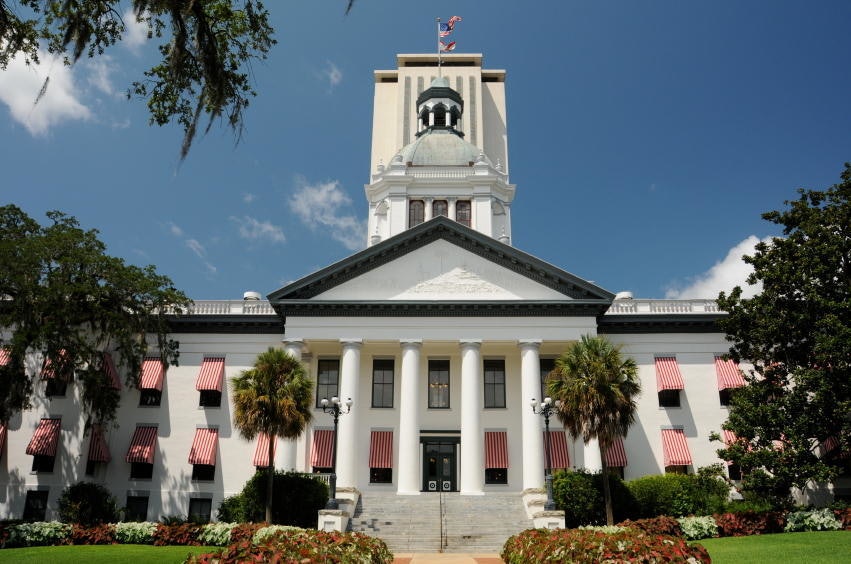Dive Brief:
- The State University System of Florida’s governing board plans to vote Friday to approve the creation of the Commission for Public Higher Education, a new accreditor formed by the state university system and five other Southern public higher education networks.
- The state’s Legislature has devoted $4 million to the Florida governing board to help with startup costs for the new accreditor, according to CPHE’s business plan. The accreditor expects the other five university systems to devote a similar level of resources to the effort.
- CPHE hopes to begin accrediting six institutions by June 2026 and to become recognized by the U.S. Department of Education by June 2028. Accreditors must operate for two years before the Education Department will recognize them.
Dive Insight:
Florida Gov. Ron DeSantis announced the formation of the new accreditor for public colleges in late June, criticizing diversity, equity and inclusion standards at existing agencies and framing the effort as a way to focus more on student outcomes.
The new accreditor’s business plan echoes those aims.
“CPHE will laser-focus on student outcomes, streamline accreditation standards, focus on emerging educational models, modernize the accreditation process, maximize efficiency without sacrificing quality, and ensure no imposition of divisive ideological content on institutions,” it states.
Still, the new agency is a long way off from getting the Education Department’s recognition, which is required before its accreditation can grant colleges access to federal financial aid. The business plan notes that the Education Department usually takes at least two years to recognize a new accreditor after it submits its application, which it plans to submit in 2026.
The Education Department currently recognizes about two dozen institutional accreditors, according to a federal database.
Colleges that want to be accredited by CPHE will be able to retain their current agency while the new accreditor seeks the Education Department’s recognition, according to the business plan. Once it becomes federally recognized, colleges can make CPHE their primary accreditor and shed their other agency, if they wish.
The founding members of the new accreditor are the State University System of Florida, the Texas A&M University System, the University System of Georgia, the University of North Carolina System, the University of South Carolina system and the University of Tennessee System.
Each system will appoint someone to sit on CPHE’s board of directors, which will establish accreditation standards and policies.
The new accreditor will also create a paid Interim Review Committee, which will conduct peer reviews of colleges and make recommendations to the board of directors about accreditation actions. The committee will report to CPHE’s board of directors and include academic experts, auditors and compliance officers.
The business plan credits recent federal policy changes for making it easier for colleges to jump to new accrediting agencies.
That includes a regulatory change during President Donald Trump’s first term that removed regional restrictions on the nation’s seven major accreditors, meaning they each can now represent colleges nationwide instead of only those located in their traditional geographic territories.
The business plan also points to May guidance from the Education Department to make it easier for colleges to switch accreditors and revoked more rigorous Biden-era policies on changing agencies. It also mentions a recent executive order from Trump that in part aims to streamline the process for recognizing new accrediting agencies.
The Education Department said it will decide on accreditation change requests within 30 days. If the agency doesn’t respond by that deadline, colleges will receive automatic approval unless they don’t meet the eligibility requirements.
One higher education expert has described the deadline as a “30-day rubber stamp,” arguing that it takes time and expertise to conduct such reviews. Yet the procedural changes are coming even as the Education Department attempts to shed roughly half of its staff.
Colleges will not be eligible to switch if they’ve faced accreditor sanctions within the last two years. However, they will be able to switch for a litany of other reasons, including objecting to their current accreditors’ standards.
Both Florida and North Carolina legislators have passed laws in recent years requiring public colleges to switch accreditors each cycle, which usually run between six to 10 years. The changes came after each state’s public university systems publicly spat with their accreditor, the Southern Association of Colleges and Schools Commission on Colleges.
SACSCOC accredits each college within the six founding members’ university systems. However, some institutions in Florida and Texas have begun the process of switching to new agencies, according to CPHE’s business plan.










